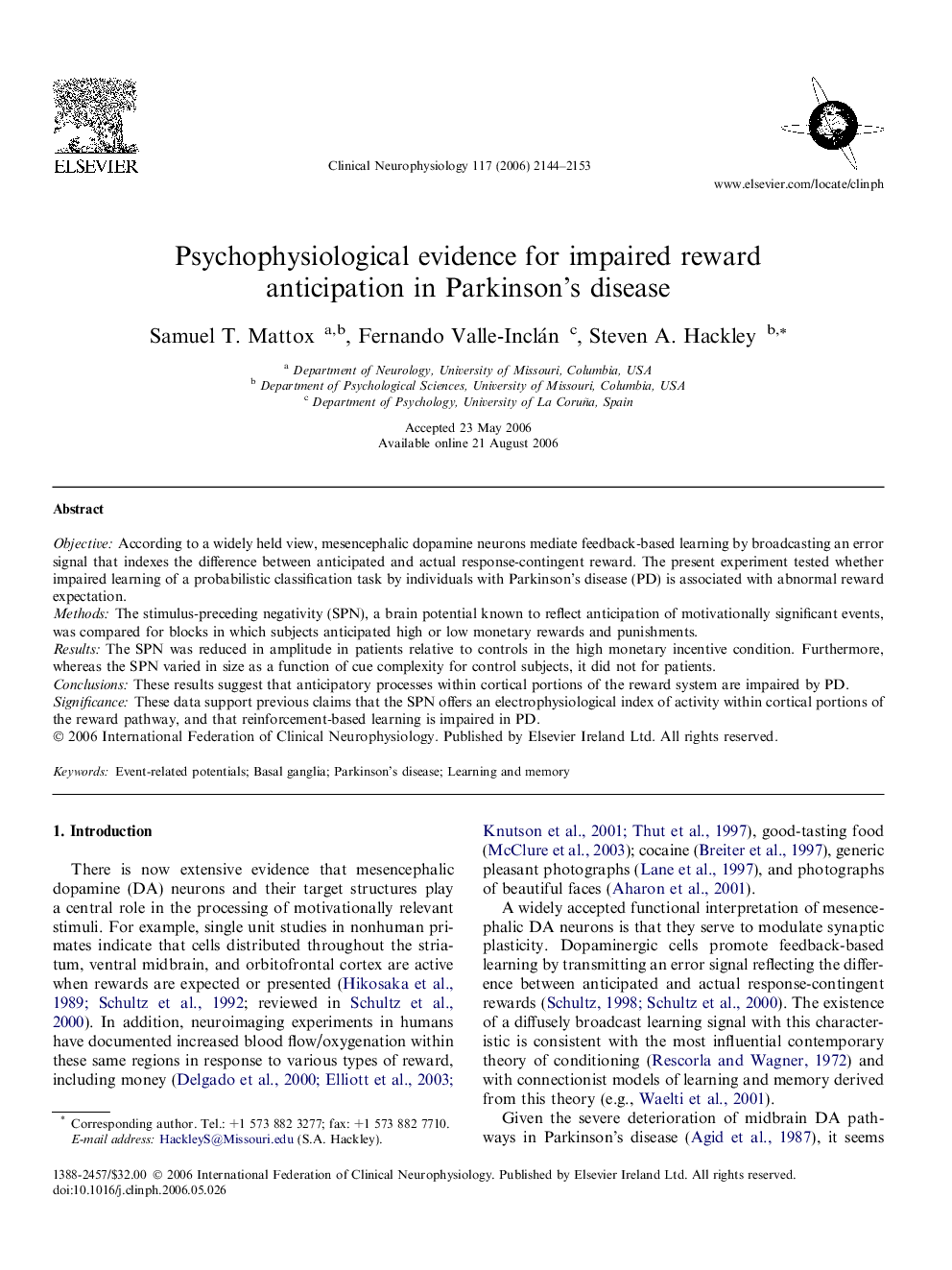| Article ID | Journal | Published Year | Pages | File Type |
|---|---|---|---|---|
| 3047663 | Clinical Neurophysiology | 2006 | 10 Pages |
ObjectiveAccording to a widely held view, mesencephalic dopamine neurons mediate feedback-based learning by broadcasting an error signal that indexes the difference between anticipated and actual response-contingent reward. The present experiment tested whether impaired learning of a probabilistic classification task by individuals with Parkinson’s disease (PD) is associated with abnormal reward expectation.MethodsThe stimulus-preceding negativity (SPN), a brain potential known to reflect anticipation of motivationally significant events, was compared for blocks in which subjects anticipated high or low monetary rewards and punishments.ResultsThe SPN was reduced in amplitude in patients relative to controls in the high monetary incentive condition. Furthermore, whereas the SPN varied in size as a function of cue complexity for control subjects, it did not for patients.ConclusionsThese results suggest that anticipatory processes within cortical portions of the reward system are impaired by PD.SignificanceThese data support previous claims that the SPN offers an electrophysiological index of activity within cortical portions of the reward pathway, and that reinforcement-based learning is impaired in PD.
